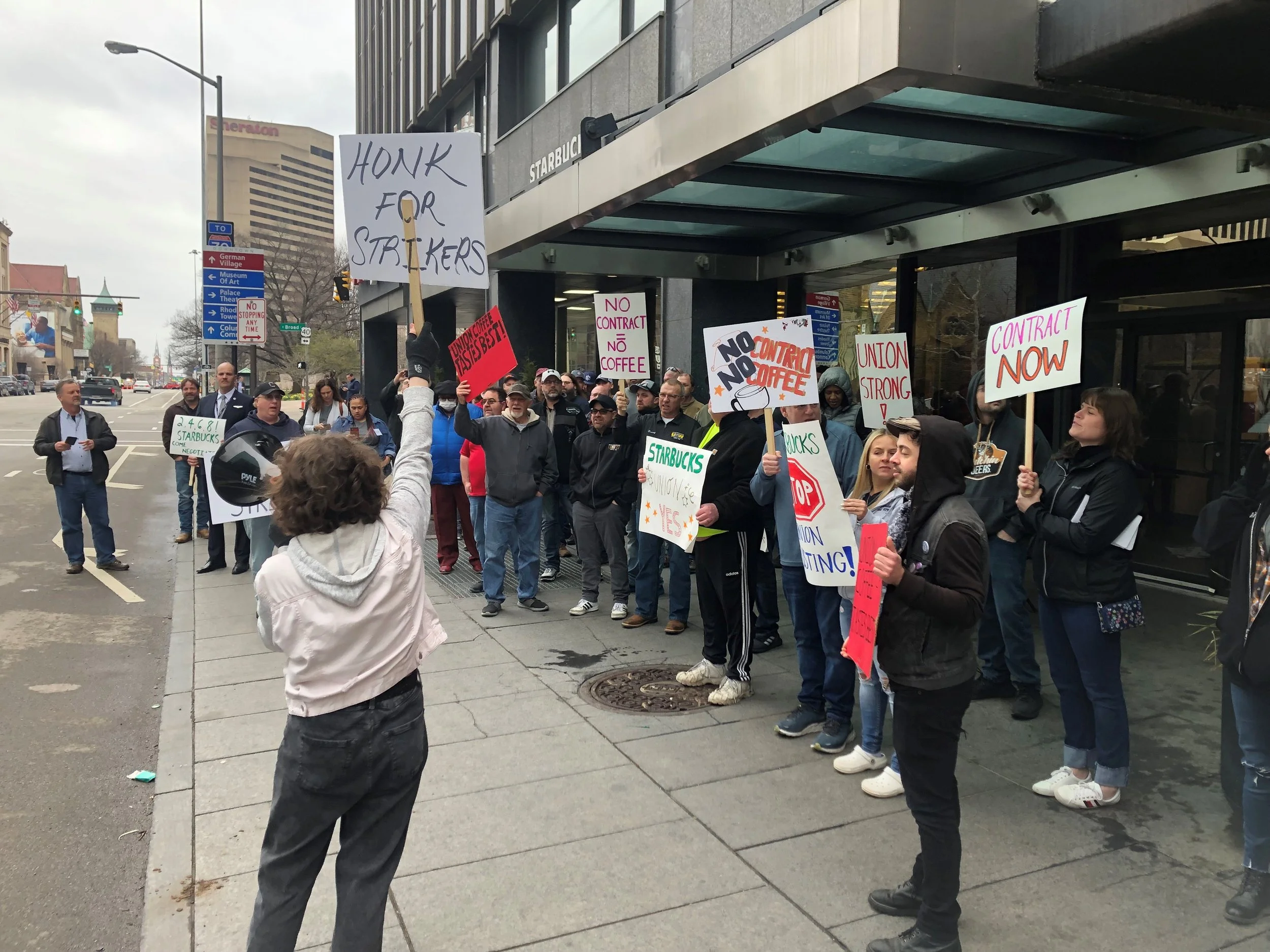
Form a Union
Organizing is the backbone of a strong dynamic in the workforce. It is about working towards a more equitable, safer workplace where individuals hold greater power to influence pay, benefits, and safety amongst their co-workers. Thousands of working people—all across the country and in all kinds of jobs—organize unions every year because unions are the best way to secure the things you care about. If you are interested in organizing a union in your workplace, we’re here to help.
Fill out our discreet survey to get started.
(We will need either an email or phone number in order to respond)
4 Steps to Form a Union
When you and your co-workers come together to form a union, you get the right to negotiate with your employer over wages, benefits and working conditions.
No matter what the industry you are in, or the labor law that covers it, the process for forming a union is similar.
Get together with your co-workers who share a common interest in organizing a union.
1.
Share the benefits of forming a union to grow and build support among your co-workers.
2.
Talk to an established and knowledgeable union organizer in order to strategize and learn next steps in the process.
3.
Make sure you can reflect the support through an election or a card-check once you have a strong majority.
After you have officially organized your union, you’ll choose your leaders and negotiate a contract. It will be hard work, and you may face pushback. But, in the end, it will be worth it for everyone. The process is democratic, and the more inclusive you can be, the stronger your union will be.
Learn more about your rights to engage in union activity.
The Union Difference
What makes unions so important? For one, unions pave the road to get to the middle class for millions of workers.
Plus, workers in a union have:
higher wages (11.2% more than what nonunion workers make)
employer-provided health insurance (96% compared to 69%)
access to paid sick days (93% compared to 75%);
retirement benefits through private employers (82% to 48%); and
guaranteed pensions through private employers (54% to 8%).
The union advantage is even greater for people of color, women, immigrants, and others who historically have faced workplace discrimination. A union contract is a potent weapon against unequal pay and structural racism because it establishes fair and transparent systems for hiring and firing, wages and more.


